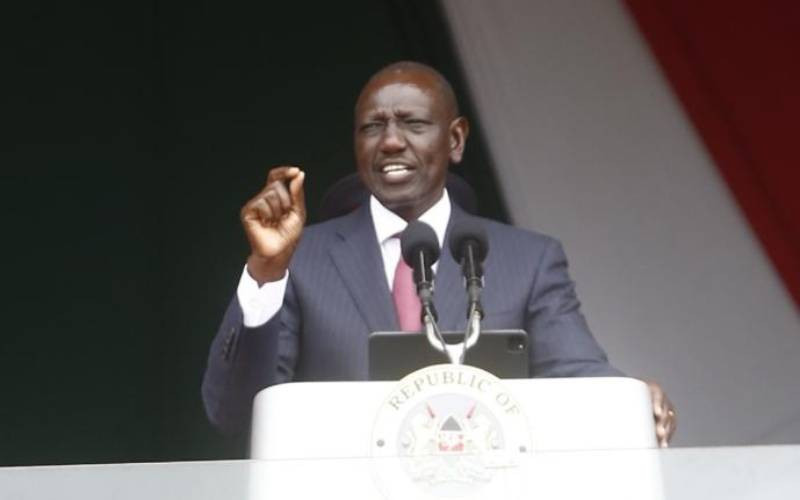×
The Standard e-Paper
Home To Bold Columnists

President William Ruto during the Mashujaa Day celebrations at Kericho Green Stadium in Kericho County on October 20, 2023. [Kipsang Joseph, Standard]
Our guest, Tete Antonio, Minister of Foreign Affairs of the Republic of Angola, members of the diplomatic corps, distinguished guests, Kenyans;